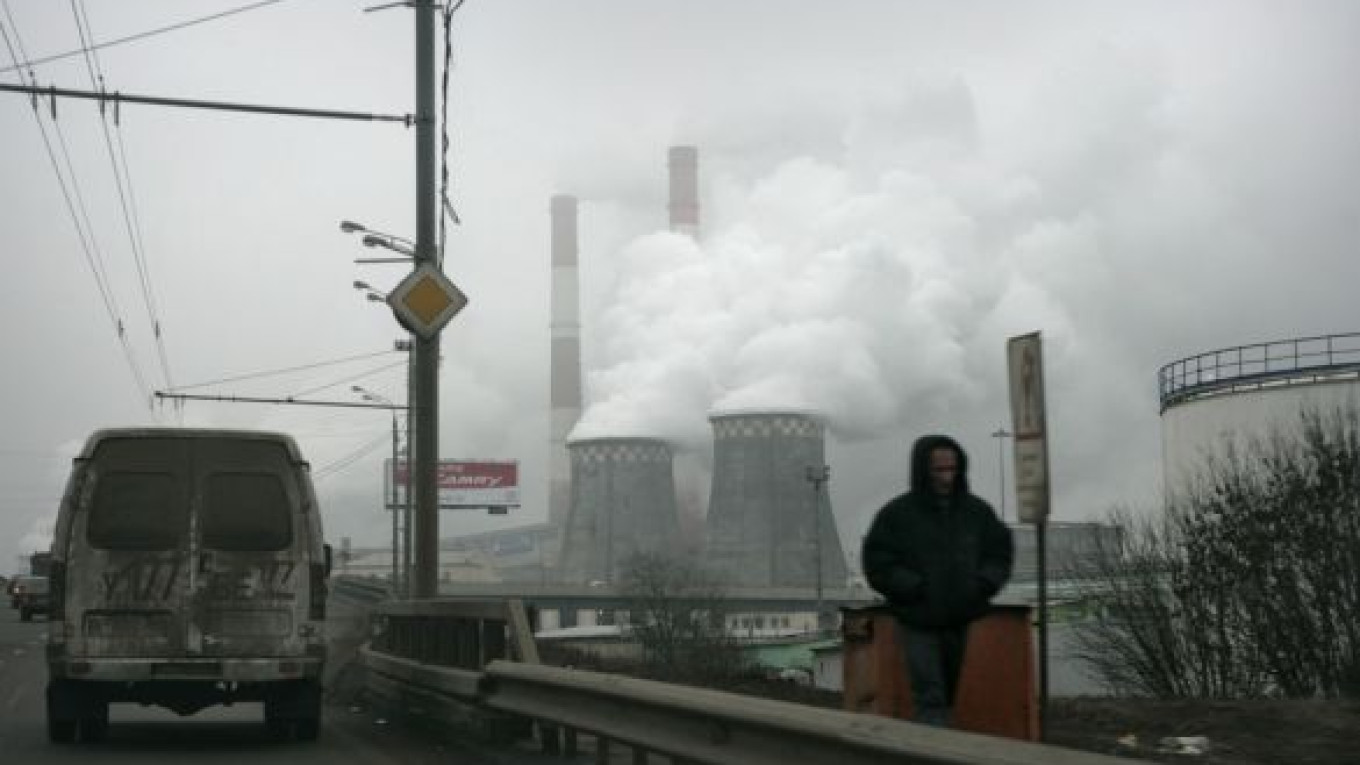Activists, journalists and private citizens could find it easier to access information about the environmental records of businesses and government agencies under a new policy approved by outgoing President Medvedev.
Freedom of information is one proposal laid out in a 2,900-word environmental policy document published Monday on the Kremlin website.
"Principles of state policy on environmental development in the Russian Federation in the period up to 2030" for the first time identifies "global environmental problems associated with climate change, biodiversity loss, desertification and other negative environmental processes" as having an impact on Russian national interests.
The report also singles out poor water treatment, degradation of agricultural soil and increasing volumes of waste as major challenges facing the country.
Proposals in the wide-ranging document include promoting "environmentally oriented economic growth," slashing pollution from industry to levels "of other developed countries" and making environmental education a key part of schools' curriculum.
Businesses may face compulsory environmental impact assessments for new developments, phased introduction of a system of an environmental audit system and a ban on unsorted garbage.
The document offers no estimate of the costs of the transition to higher standards, but says such projects will be financed from federal and regional budgets, as well as public-private partnerships.
Environmentalists have applauded the sentiments, but warned that though the strategy promises much, it offers little detail.
"We welcome any documents that help to create a system to support the environment," said Vladimir Chuprov, director of Greenpeace Russia's energy program. "Unfortunately, the document is quite empty — there are some very proper statements but no concrete steps outlined on how to achieve it. No ministerial body is named to oversee it, for example — it is entirely written in the passive voice."
Chuprov did welcome the commitment to include environmental issues in new national educational standards — one thing he says should be one of the strategy's top priorities.
But he said he was disappointed that despite references to environmentally friendly growth, there was no mention of transitioning to a low-carbon economy, or more details about the creation of institutions to properly regulate environmental affairs.
Residents of the Marino, Kozhukhovo and Kapotnya districts are breathing the most polluted air in Moscow, according to research by City Hall's department of natural resource use and environmental protection, Interfax reported Wednesday.
An investigation into a flurry of complaints about unpleasant smells from the Moscow oil refinery in Kapotnya, and the Kuryanovsky and Lyuberetsky water treatment plants in Marino and Kozhukhovo showed unusually high levels of hydrogen sulfide, the research showed.
Department officials said they hoped to develop a plan to reduce air pollution at all three facilities by the end of 2012.
A Message from The Moscow Times:
Dear readers,
We are facing unprecedented challenges. Russia's Prosecutor General's Office has designated The Moscow Times as an "undesirable" organization, criminalizing our work and putting our staff at risk of prosecution. This follows our earlier unjust labeling as a "foreign agent."
These actions are direct attempts to silence independent journalism in Russia. The authorities claim our work "discredits the decisions of the Russian leadership." We see things differently: we strive to provide accurate, unbiased reporting on Russia.
We, the journalists of The Moscow Times, refuse to be silenced. But to continue our work, we need your help.
Your support, no matter how small, makes a world of difference. If you can, please support us monthly starting from just $2. It's quick to set up, and every contribution makes a significant impact.
By supporting The Moscow Times, you're defending open, independent journalism in the face of repression. Thank you for standing with us.
Remind me later.


